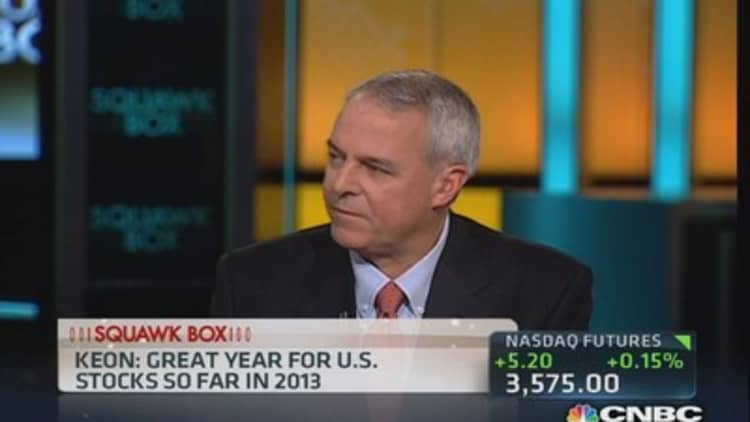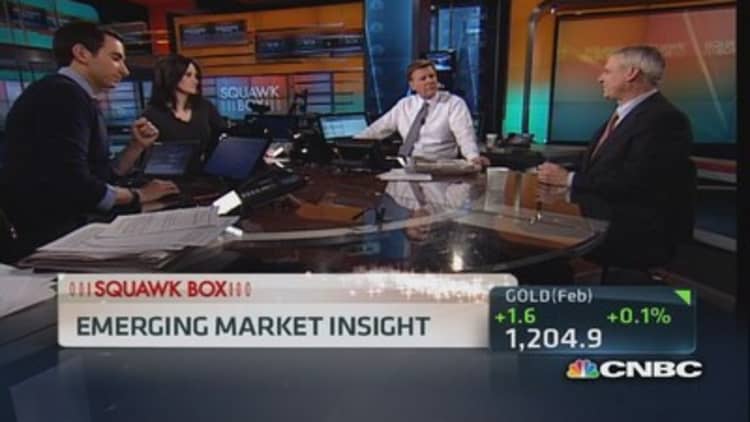
Ed Keon remains bullish on the U.S., and it's hard not to after the S&P 500 rose more than 28 percent in the past year.
He just sees more "bang for your buck" in European equities because of lower valuations there and increased global competition as the international economic recovery shows signs of life. Keon, a managing director at Quantitative Management Associates, said Thursday that U.S. equities rose so much in the past year they made their counterparts in Europe and other developed markets look much cheaper on a risk-adjusted basis.
"We have been moving money toward Europe," Keon said on "Squawk Box." "We still have a very big position in the United States, but early in the year I thought the U.S. was basically a no-brainer. Earlier in the year we had a huge position there, and we have trimmed a little bit of that and moved towards Europe basically because of the valuation."
(Read more: Goldman: How Europe outperforms in 2014)

Despite his change in positions, Keon appeared more bullish than most when it comes to economic recovery in the United States. He said to expect the economy to grow by 5 percent in some quarters next year.
"We're going to see much much stronger growth over the next couple years than most people believe," Keon said. "You're finally starting to see the pent up demand for autos and housing starting to be realized."
(Read more: Euro zone's 2014 pressure point—politics)
Steve Sachs, the head of capital markets at ProShares Advisors, wouldn't go as high as 5 percent GDP growth, but he said the U.S. could see 4 percent spikes during some quarters as growth continues. He also said investors might need to look outside U.S. markets for stocks that can outperform.
(Read more: The bullish case for bonds: Pimco pro)
"The relative outperformance of the U.S. markets versus others, that gap probably closes a little bit," Sachs said during a later appearance on "Squawk Box." "Meaning you're going to have to look around the globe into different asset classes in order to get that big relative outperformance."
—By CNBC's Jeff Morganteen. Follow him on Twitter at @jmorganteen.


